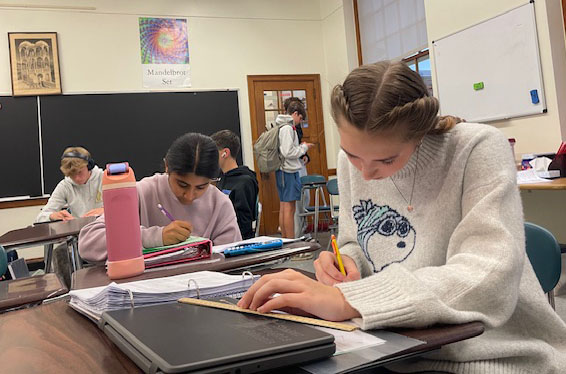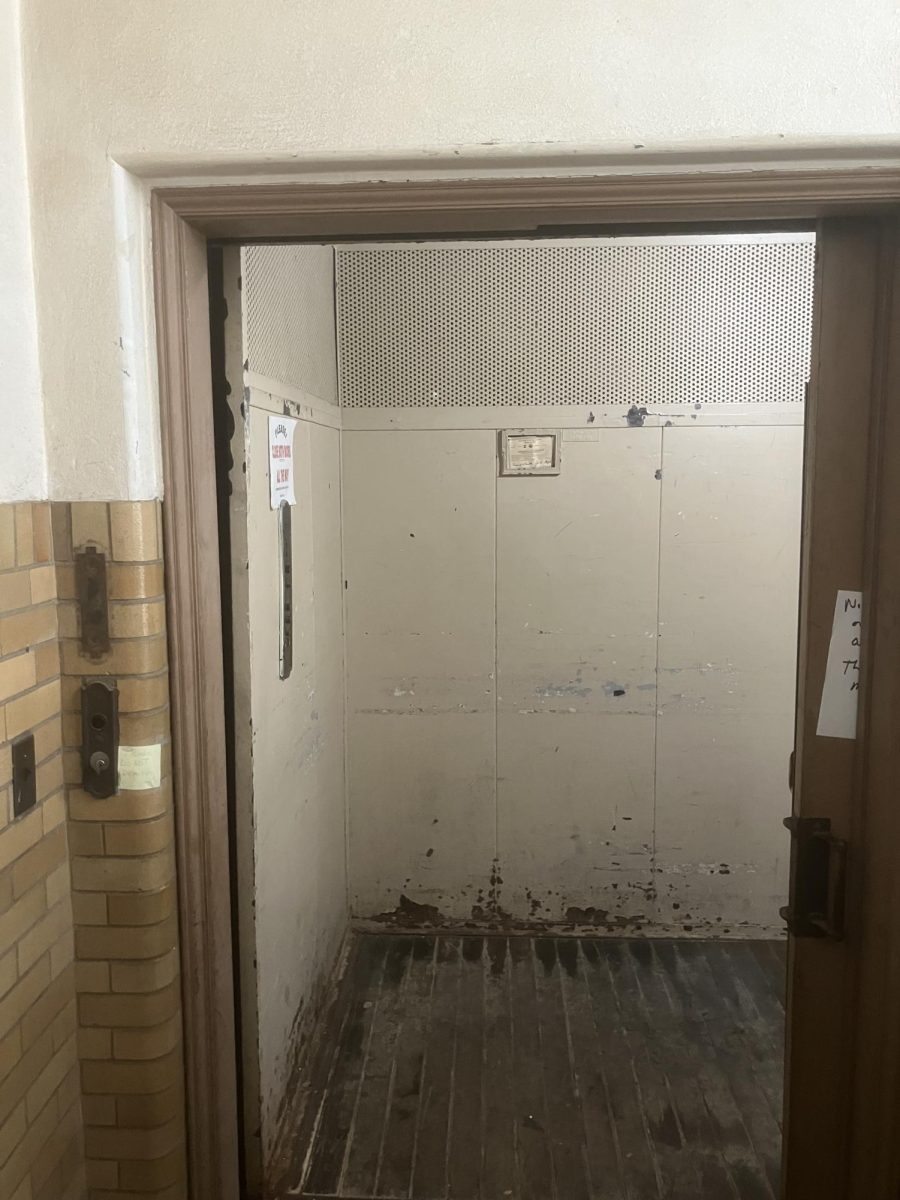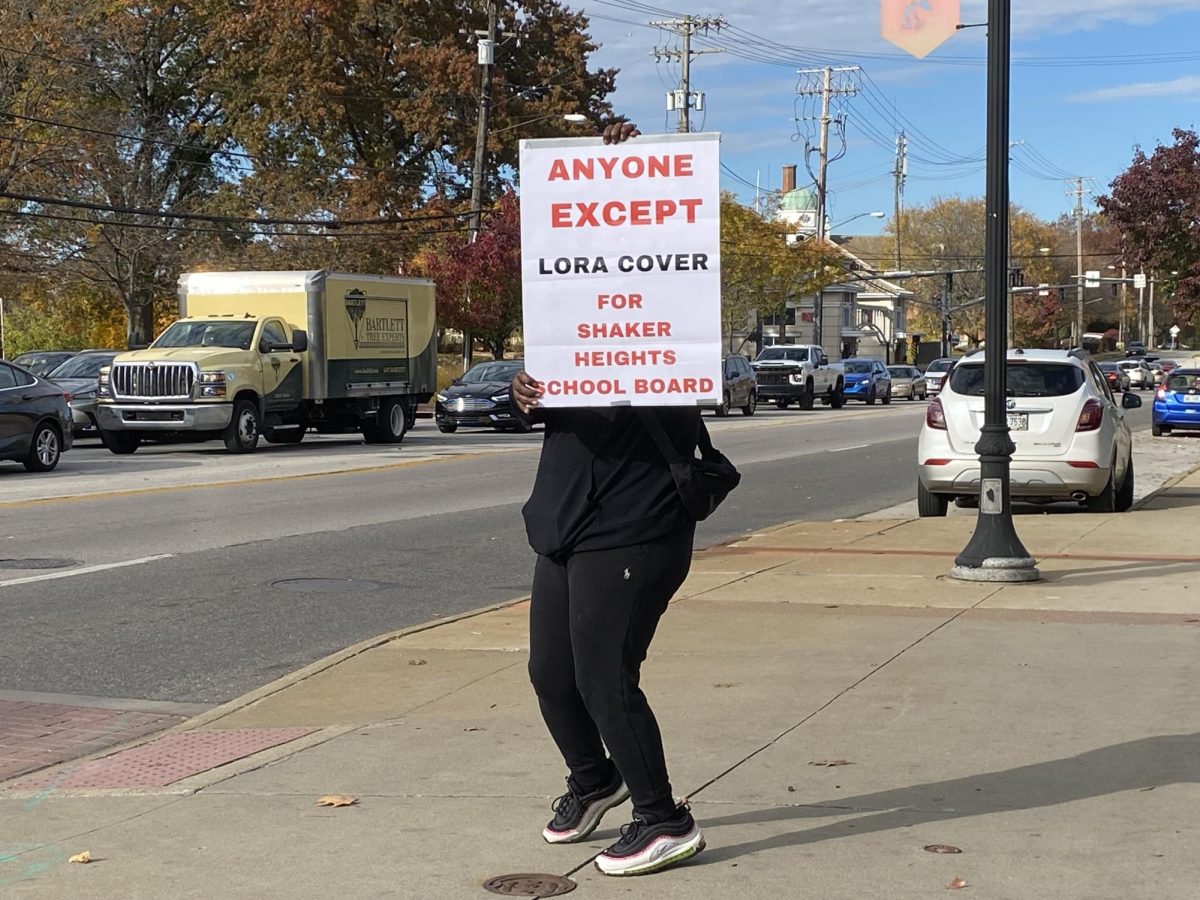By locking away their phones, AirPods and smart watches in Yondr pouches, the full student body experienced their first day of the district’s new electronic device policy.
Teachers handed out Yondr pouches and new IDs to grades 10-12 during Crew this morning, and when instructed, students locked away their devices. Freshmen received Yondr pouches and new IDs yesterday.
Dr. Kerry O’Connor, science teacher, said that things have been running smoothly in her classes, including her freshmen Crew, where there wasn’t too much pushback against the policy. “In all of my classes today and yesterday, people were way chattier than they’ve been the last few years, in a good way,” O’Connor said.
The district is using Yondr pouches to manage student cell phones and electronic communication devices during the 2024-25 school year. Yondr pouches are small fabric bags that are locked and unlocked with a unique magnet.
The policy complies with House Bill 250, which Gov. Mike DeWine signed May 15. The law requires public schools to enact written policies that restrict student cell phone use during school hours by July 2025. The district began researching and drafting its policy in 2023.
Students are responsible for bringing their Yondr pouch to school daily. Lost or damaged Yondr pouches will incur a $30 replacement fee.
Senior London DeMarco said that he didn’t notice many changes among peers and teachers, but the new phone policy was most annoying at lunch. “There’s so many people that don’t sit with anyone at lunch, and now they don’t have a way to do anything,” he said. “I think that’s so stupid and we should have our phones at lunch.”
“I feel like we should still have a way to connect to the outside world just in case there are emergencies,” said DeMarco, “which is why I became very angry when my physics teacher took my Apple Watch.”
English Department Chairperson Emily Shrestha said that she knew what to expect with the Yondr pouches after using them with students in summer school. “Students are moving better in the hallways because they are not distracted by phones,” she said. “I think that it was interesting to have students, when they were done with their work, turning and talking to neighbors, rather than turning into themselves or into their devices.”
Associate Principal James Dubsky said that overall, he thought the day was satisfactory.
Sophomore Keith Baker said that he observed positive effects of the policy. Said Baker, “Usually you would see a ton of people on their phones during classes, and it was really great seeing everyone starting to socialize.”
Eliot Call and Vaughn Ullom contributed to reporting.







